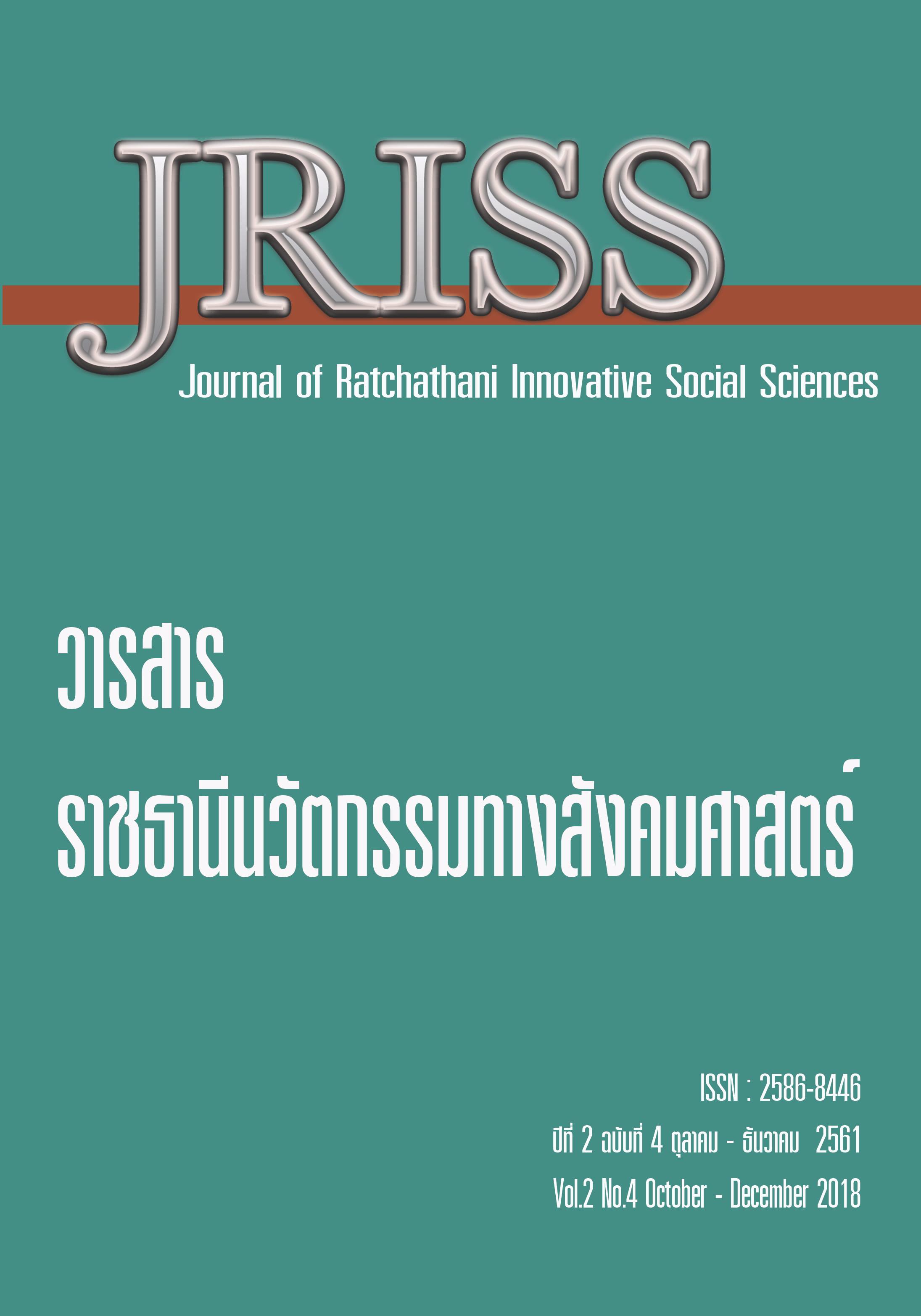THE COMPARATIVE STUDY OF THAI AND JAPANESE HIGHER EDUCATION
Main Article Content
Abstract
The article aims to study the comparative of Thai and Japanese higher education. This article is descriptive research from documentary analysis and visiting university in Japan. The researchers study and analyzes the educational components of university in Thailand and Japan in 7 areas: Results of the study revealed that 1) Higher education system: the duration of study in the university in Thailand and Japan is the same for four years for a degree, two years for a master's degree, and three years for a doctoral degree. All Japanese’s candidates who sufficient experience in thesis can be submitted through a thesis without study in the university. Teaching system is focusing on practical learning. And the specialized universities can support the profession and the need of the job market more than Thailand. 2) Higher education policy and philosophy: both Thailand and Japan have a similar educational philosophy and education policy that focuses on developing people with knowledge who can design innovation and creativity for development the country. 3) Government support: both private and government Universities in Japan, is supported from the Ministry of Education and the private sector. For Thai universities has own management and some of them focus on the number of students rather than the quality. 4) Research promotion: In Japan, there is the national organization to manage educational researches. But in Thailand have none. There are Japanese researchers more than Thai researchers. At the same time, both Thailand and Japan lacked appropriate research assessments. Including dissemination of research results and research that cannot do as much as they should. 5) Performance of university lecturers: in Japan, the remuneration of professors in the university is higher than in Thailand. And Japan has an advisor system that encourages and be closer with students. 6) University Admissions exam: both Thailand and Japan have different entrance examination systems. Students can choose to study in a college or university. 7) Teaching the third language in university: both Thailand and Japan have similar language barriers. For 3rd language teaching in university, Japan will focus on students that can communicate and understand both language and culture of their country. In Thailand, many courses are focusing on grammatical. Finally, the approach of application Japanese education system to the Thai education system is development of education at all the times and focusing on practical teaching. All students learn for practical more than memorization. At any rate we should consider the difference area too.
Article Details
ความคิดเห็นและข้อเสนอแนะใด ๆ ที่นำเสนอในบทความเป็นของผู้เขียนแต่เพียงผู้เดียวโดยบรรณาธิการ กองบรรณาธิการ และคณะกรรมการวารสารราชธานีนวัตกรรมทางสังคมศาสตร์ไม่ได้มีส่วนเกี่ยวข้องแต่อย่างใด มหาวิทยาลัย บรรณาธิการ และกองบรรณาธิการจะไม่รับผิดชอบต่อข้อผิดพลาดหรือผลที่เกิด จากการใช้ข้อมูลที่ปรากฏในวารสารฉบับนี้
References
ปานเพชร ชินินทร และคณะ. (2552). การพัฒนาแนวทางการจัดการเรียนการสอนที่บูรณาการการเรียนรู้กับการทำงานในสถาบันอุดมศึกษา (Work-Integrated Learning).กรุงเทพมหานคร: สำนักงานเลขาธิการสภาการศึกษา กระทรวงศึกษาธิการ.
มนตรี แย้มกสิกร. (2548). ระบบการผลิตและพัฒนาครูของประเทศญี่ปุ่น (Teacher Training System in Japan). วารสารศึกษาศาสตร์ มหาวิทยาลัยบูรพา, 16(2), 41-60.
เรืองศักดิ์ แก้วธรรมชัย. (2556). โครงการระบบการศึกษาของไทยกับญี่ปุ่น. กรุงเทพมหานคร: คณะบริหารธุรกิจ สถาบันการจัดการปัญญาภิวัฒน์.
วลัยพร แสงนภาบวร และคณะ. (2550). การกระจายอำนาจทางการศึกษาของประเทศญี่ปุ่น (รายงานการวิจัย). กรุงเทพมหานคร: สำนักงานเลขาธิการสภาการศึกษา กระทรวงศึกษาธิการ.
สุวิมล ว่องวาณิช และคณะ. (2541). การศึกษาเปรียบเทียบสภาพและแนวโน้มการวิจัยทางการศึกษาในประเทศไทยและญี่ปุ่น. กรุงเทพมหานคร: สำนักงานคณะกรรมการวิจัยแห่งชาติ.
สมาคมที่ประชุมอธิการบดีแห่งประเทศไทย. (2560). การชี้แจงระบบการคัดเลือกบุคคลเข้าศึกษาในสถาบันอุดมศึกษา. สืบค้นจาก http://tcas.cupt.net/src/tcas61-detail.pdf
สมชัย ฤชุพันธ์ุ และคณะ. (2550). การศึกษาเปรียบเทียบระบบงบประมาณเพื่อการศึกษาของประเทศไทยกับประเทศต่างๆ (รายงานการวิจัย). กรุงเทพมหานคร: สำนักงานเลขาธิการสภาการศึกษา กระทรวงศึกษาธิการ.
สำนักงานเลขาธิการสภาการศึกษา. (2550). การกระจายอำนาจทางการศึกษาของประเทศญี่ปุ่น. กรุงเทพมหานคร: ห้างหุ้นส่วนจำกัด ภาพพิมพ์.
สำนักงานเลขาธิการสภาการศึกษา. (2556). กรอบและทิศทางการวิจัยทางการศึกษาของประเทศ (พ.ศ.2555-2558). นนทบุรี: ห้างหุ้นส่วนจำกัด เจริญผลกราฟฟิค.
สำนักงานเลขาธิการสภาการศึกษา. (2558). สถานภาพการผลิตและพัฒนาครูในประเทศไทย. กรุงเทพมหานคร: บริษัท พริกหวานกราฟฟิค จำกัด.
Good, Carter V. (1973). Dictionary of Education. New York: McGraw-Hill Book. Likert, R. (1967).
Thanavit Singkapa. (2016). Comparative Higher Education System between Thailand and Japan. Paper presented at the The 8th Thailand-Japan International Academic Conference 2016, Bangkok, Thailand.


